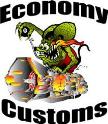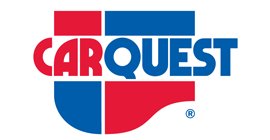Keeping Your Engine Cool in Bristol, Connecticut
Posted February 22, 2011 12:00 PM
The cooling system keeps Connecticut vehicle's engines from overheating while they are driving around Bristol. Its job is to move heat away from the engine. Let's talk about the various components of the system and how they make this happen.
The radiator is the part most Bristol drivers associate with the cooling system. Coolant flows through the radiator which has fine cooling fins that draw the heat out of the coolant and dissipate it into the air. To make sure there's enough airflow over the radiator, a fan pulls air over the cooling fins even when the vehicle is idling.
In some vehicles, the fan is powered by the serpentine belt. On others, an electric motor runs the fan. Electric fans turn on and off as needed. You may have heard the fan kick on shortly after you turn your vehicle off. The sensor has determined that the engine needs a little help cooling down to a safe temperature.
A hose connects the radiator to the water pump. The water pump pushes the water into the vehicle engine block. Now the engine block and cylinder heads have passages for the coolant to pass through without getting into the oil or the combustion chamber. In the automotive community, these passages are referred to as the "water jacket."
While the coolant is passing through the water jacket, it absorbs heat from the vehicle engine on its way to the radiator for cooling. Between the engine and the radiator is a gatekeeper called the thermostat. The thermostat's job is to regulate the temperature of the engine just like your home thermostat regulates the temperature in your house. It gets your engine up to the correct operating temperature and then keeps it from overheating.
When you first start the engine, it's very cold and needs to warm up. So the thermostat blocks the flow of coolant to the radiator. As the engine warms up, the thermostat starts to let coolant flow through the system.
The final component the team at Economy Transmission and Auto Repair wants to point out is the overflow reservoir. This bottle is designed to hold some of the coolant. It'll have a mark that indicates whether or not you have enough coolant. This is where you should add coolant if you just need to top it off.
Caution: never open the reservoir or the radiator cap when the car's hot. The cooling system is pressurized, and opening those caps while it's hot can cause hot coolant and steam to escape resulting in serious burns.
Cooling system failure is the most common mechanical failure in vehicles around Bristol, Connecticut. At Economy Transmission and Auto Repair, we can do a periodic inspection of the components for leaks, loose connections and weakening hoses.
Your vehicle manufacturer has also specified a cooling system service interval. With a cooling system service at Economy Transmission and Auto Repair in Bristol, the old coolant is replaced with correct clean fluid that contains the additives required to prevent corrosion. The additives are depleted over time and you need fresh fluid for adequate protection. Your radiator pressure cap should be replaced at this service as well.
Economy Transmission and Auto Repair
201 Terryville Road
Bristol, Connecticut 06010
(860) 589-1255
Training Received by Technicians in Bristol, Connecticut
Posted February 18, 2011 3:00 AM
When your vehicle breaks down in the Bristol, Connecticut, area, or just needs some routine service, it can make you a little nervous. Because your vehicle's so important to your life, you need to be back on the road as soon as possible — with the problem fixed right the first time.
We've been checking into some of the training our Bristol, Connecticut, technicians receive, and we're very impressed. It's amazing how much knowledge and skill goes into diagnosing and repairing a modern vehicle. So it's not like when your uncle worked on his hot rod over the weekend.
Today there are four-cylinder engines around Bristol that make more power than the V-8's in luxury cars did 20 years ago. A new V-6 Toyota Camry could beat Sonny Crocket's Ferrari in a race to 60 mph/97 kph.
Our engines are more and more powerful. And they're so reliable. This is all due to engineering. But the benefits come to Bristol drivers at the price of simplicity. Modern cars are so much more complex from a mechanical standpoint that it makes your head spin.
Then there are the electronics. Some vehicles on Connecticut roads have several networked computers controlling most of the engine functions and many other vehicle functions as well. Bristol drivers take all of this sophistication for granted – but somebody has to fix it when it breaks.
It's a real challenge for the pros at Economy Transmission and Auto Repair and other Bristol auto service centers to keep up. It requires a high level of commitment on the part of the auto technician and the service center. In addition to the training, there's the financial commitment to purchase the diagnostic and repair tools as well.
So where do Bristol technicians go for training? There are many sources. It's usually a combination of formal classroom training, training provided in the service center by auto parts and equipment manufacturers, online courses and home study courses. There are many independent certifications available all the way up to Master Technician.
Service centers in Bristol, Connecticut, have a lot of other resources available. No one can know everything, so service centers like Economy Transmission and Auto Repair subscribe to data services, technical libraries and even online communities that can help them when they run into a difficult problem.
It's like those medical diagnosis shows on TV. Here are the symptoms. What's the diagnosis and treatment? Diagnosis is every bit as much an art as a science. Bristol drivers want everything to be simple, straightforward and cheap – and sometimes it just isn't.
So, be more relaxed next time you take your vehicle in. You can trust the professionals at Economy Transmission and Auto Repair. You're in good hands. The more you know, the more comfortable you can be with your automotive service decisions at Economy Transmission and Auto Repair.
Economy Transmission and Auto Repair
201 Terryville Road
Bristol, Connecticut 06010
(860) 589-1255
Recommended Service Intervals at Economy Transmission and Auto Repair
Posted February 11, 2011 11:00 AM
Most people in the Bristol area are aware that automotive manufacturers have recommended service intervals. Following recommended service intervals is very important. The engineers that design our vehicles have tested the various systems and components to meet durability and safety standards. Some of these standards are self-imposed and others, like those for emissions components, are government mandated for areas in Connecticut.
The maintenance schedules are designed to achieve the standards. Think of the benefits of following recommended intervals as falling into three general categories: Protection, Efficiency and Safety.
Protection. Let's start with motor oil. First of all, the engineers recommend a particular weight and type of motor oil for your vehicle. All of their oil change recommendations assume using the proper motor oil. Motor oil contains detergents and other additives that clean the engine and provide corrosion resistance. Over time, the additives are depleted. The oil also becomes contaminated by water, dirt and combustion gases.
Extending your interval beyond the recommendation means that your vehicle engine will be operating without the full protection of fresh motor oil. It also means that sludge can form in contaminated oil and clog up passages in the engine, starving parts from needed lubrication.
Efficiency. Some services are designed to keep automotive systems operating efficiently. For example, the fuel system gets clogged up with gum and varnish from the fuel. Fuel doesn't flow efficiently which reduces fuel economy. A fuel system cleaning restores the fuel system's efficiency and increases your gas mileage.
Safety. Your brakes are a component of one of the most important safety systems on your vehicle. The manufacturer has scheduled brake pad replacement as well as power brake fluid drain and replacement intervals. Because brakes are so important, a brake inspection is also on the schedule to head off problems before they result in an accident.
Check your owner's manual for recommended service schedules or talk with your Bristol service advisor at Economy Transmission and Auto Repair by calling (860) 589-1255.
You may be surprised to learn that various inspections may be on your list of factory recommendations for your vehicle. These inspections are usually at major intervals like 15,000 or 30,000 miles/24,000 or 48,000 km. They're designed to uncover important parts that may be close to failing.
Your vehicle owner's manual can tell you when to change your oil, but it can't tell you that you have a radiator hose that's bulging and about to burst. For that you need a trained auto technician. These scheduled inspections are in addition to the multi-point inspections done with a full-service oil change.
Economy Transmission and Auto Repair
201 Terryville Road
Bristol, Connecticut 06010
(860) 589-1255
ICE - In Case Of Emergency In Bristol Connecticut
Posted February 3, 2011 3:00 AM
When accidents occur in Bristol, Connecticut, the victims' emergency contacts are extremely important. Too often, those involved aren't able to provide rescuers with phone numbers and medical information.
When Connecticut police and rescue workers must sift through pockets, glove compartments, wallets, purses and cell phone directories, they waste precious time.
In the unfortunate event that you are involved in an accident, you have people in the Bristol, Connecticut, area who you'll want to be contacted to arrange help, give consent to treatment and inform Bristol paramedics of medical conditions, allergies or medications.
A brilliantly simple solution is now spreading through Bristol and around the globe: ICE. ICE – standing for In Case of Emergency – is a way to identify emergency contacts in your cell phone directory.
Simply put 'ICE' before a contact name in your cell phone, like 'ICE – Dad,' 'ICE – Nancy.' or 'ICE – Doctor Roberts.' Rescuers will be able to quickly identify your emergency contacts, saving valuable time.
Bob Brotchie, a Cambridge, England, paramedic came up with the idea and a promotional campaign in England in 2005. This idea is gaining attention in Bristol, Connecticut, and in other countries. Bristol rescue workers all know of how many times they are unable to find a wallet or purse on an accident victim, yet most Bristol area folks over 14 years of age are seldom without their cell phone.
There are national and worldwide disaster databases, but participation can cost up to $200 a year. 'ICE' is free to the 276 million cell phone users in the U.S.
It is easy for you and your families to designate some ICE contacts in your cell phone. Remember to keep the listings current.
Please join Economy Transmission and Auto Repair in getting the word out. Help us put Bristol, Connecticut, on ICE!
Economy Transmission and Auto Repair
201 Terryville Road
Bristol, Connecticut 06010
(860) 589-1255








